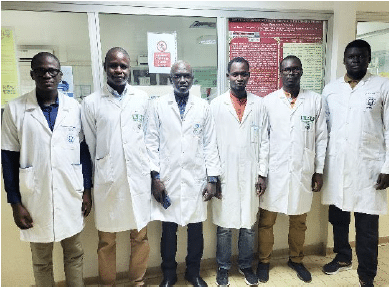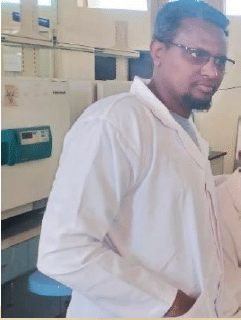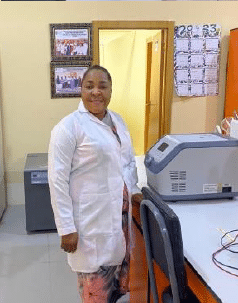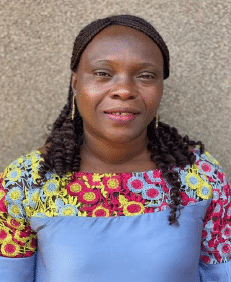Africa Microscopy Initiative redistributes research-grade light microscopes to four African institutions
Posted by Africa Microscopy Initiative, on 7 October 2025
Four research institutions in Senegal, Nigeria, Cameroon, and Ethiopia have been selected to each receive a microscope for advancing scientific research in Africa.
Equitable access to high quality microscopes remains a challenge across the African continent. In response, the Africa Microscopy Initiative (AMI) established the Program for Equipment Exchange and Reutilization (PEER), which aims to redistribute high-quality microscopes to deserving not-for-profit research and teaching institutions. These institutions are envisioned to act as microscopy hubs that will provide a network of microscopes across Africa, with the PEER microscopes functioning as shared resources to support local access. Ultimately, this will contribute to building microscopy capacity in under-resourced regions in Africa.
Inaugural call for the Program for Equipment Exchange and Reutilization
The inaugural PEER call was launched in June last year. This call was supported by Zeiss South Africa who generously provided four fully refurbished and serviceable research-grade microscopes for redistribution. These microscopes, combined value over $170,000 (R3.4 million), included an Axio Imager A2 Manual System with phase contrast and fluorescence capabilities, an Axioscope A1 with phase contrast capabilities, an Observer 5 with fluorescence capabilities, and an Axiolab 5 with polarization and brightfield capabilities. They were eligible for donation to any research institution in Africa, based on the submitted applications.
Applications to receive the microscopes through the PEER call were invited from research and teaching institutions across the African continent. Submissions had to be endorsed by the applicants’ institutions and inclusion of co-applicants were encouraged to promote sharing of resources – a key element of the PEER program.
A total of 32 institutional applications were received from 15 countries, underscoring the critical demand for microscopes across the continent. These applications represented institutions from Burkina Faso, Cabo Verde, Cameroon, Côte d’Ivoire, Egypt, Ethiopia, Ghana, Kenya, Malawi, Nigeria, Senegal, Somalia, Tanzania, Tunisia, and Uganda. The applicant institutions were diverse, including university research laboratories and shared core facilities.
Given the reach and diversity of the applications, a review committee of external global experts was tasked with evaluating the applications and determining the recipients of the PEER microscopes. This review committee consisted of professors, co-facility directors and other experts from around the world. The reviewers assessed various factors, including the justification of need, proposed research application, plans for facilitating open access to the donated microscopes, and sustainability strategies outlined by the applicant institutions.
The AMI would like to express its heartfelt gratitude to all the reviewers who were involved in this first round of applications!
Meet the awardees
Selecting the final awardees was no easy task for the reviewers as many of the applications were well-justified and strongly motivated to receive the microscopes. Nevertheless, after
careful deliberation, four institutions from four different countries were selected. The reviewers ensured that each microscope was matched to the specific research applications and needs of the recipient.

The Axio Imager A2 Manual System with phase contrast and fluorescence capabilities has been awarded to the University Cheikh Anta Diop (UCAD) in Senegal, with Prof. Aliou Ndiaye as the principal applicant. Following training support by ZEISS, AMI, and other global initiatives, this PEER microscope at UCAD will be used in plant biology and biotechnology research, investigations into neoplasms and cancer using fluorescence in situ hybridization, and a variety of other research applications. Equally important, the microscope will be made available to external users from other institutions as well as collaborators, ensuring the impact of this microscope on research in the region.

The Axioscope A1 with phase contrast capabilities has been awarded to Mekelle University in Ethiopia, with the application being led by Dr Abrha Bsrat Hailu. This microscope will support research in molecular biology and emerging diseases research, microbiology, and histopathology research and training, among other applications. As with all PEER instruments, following training by Zeiss, this PEER microscope will be made accessible to external users needing to conduct microscope experiments, with support and training available from Mekelle University staff. This further contributes to the upliftment, scientific development and capacity building of this war affected region of the continent.

With capabilities of performing fluorescence microscopy as well as transmitted light applications, the Observer 5 has been awarded to Afe Babalola University in Nigeria, with Mrs. Juliet Nnenda Olayinka leading the application process. This PEER microscope will be used in a variety of research, including imaging of model organisms such as Drosophilia melanogaster and zebrafish, as well as cell culture and histological samples. Beyond the work conducted in neuroscience, diabetes research, and other fields within Afe Babalola University, Mrs Olayinka and colleagues also endeavour to provide the microscope as a regional open-access equipment—ensuring that external researchers can utilise the microscope in their research and enhancing the impact of this redistributed microscope.

Last but not least, the Axiolab 5, equipped with polarization and transmitted light capabilities, has been awarded to the University of Buea in Cameroon. The application was led by A/Prof. Agathe Fotio Lambou epse Tonfack, who plans to use the microscope in the Malaria and Zoology Laboratory of the Department of Animal Biology and Conservation. This microscope will support research on the pathophysiology associated with parasite-induced organ dysfunction, among other areas of study. Like the other PEER instruments, this microscope will be made accessible to external users for conducting microscopic analyses.
Each of the awarded institutions has committed to specific responsibilities to ensure equitable access to the microscopes for external researchers within their local regions. These commitments include managing the microscopes as shared resources (either through paid services or open access mechanisms), designating a technical point person to oversee microscope operation and training, and ensuring the long-term sustainability of the instruments through ongoing maintenance costs. Combined, these requirements will maximise impact of the redistributed microscopes, ensuring that they are fully utilised to support scientific advancement and discoveries in Africa.
The AMI congratulates all these awarded institutions!
Moving forward
Looking ahead, AMI anticipates on expanding the PEER program with the support of commercial suppliers. With this, the goal is to provide more microscopes, resources, and advanced training to further enhance access to microscopy across Africa.
Follow the latest news and updates from the Africa Microscopy Initiative on LinkedIn and X (formerly known as Twitter) under the handles Africa Microscopy Initiative and @AMI_microscopy, as well as on their website at https://www.microscopy.africa/


 (3 votes, average: 1.00 out of 1)
(3 votes, average: 1.00 out of 1)

